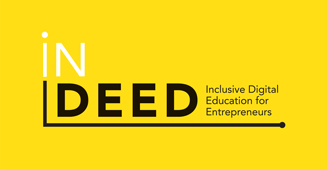Digital Inclusion can be defined as “having the access, skills and motivation to confidently go online to access the opportunities of the internet.” (The Digital Skills and Inclusion Policy paper 2017)
Therefore, digital inclusion is about ensuring people can use the internet and online technologies to meet their needs. This includes:
- Infrastructure – being able to afford or have access to a device (whether a mobile phone, tablet, or computer), as well as being able to afford or have access to the internet through broadband, Wi-Fi, or mobile data.
- Skills – having the ability, confidence, and digital skills to use digital devices and the internet
- Accessibility – having access to services that are designed to meet users’ needs, including for individuals with disabilities that require assistive technology to get online.
Of recent, it appears that lack of digital skills isn’t necessarily the biggest barrier for people, rather the lack of infrastructure and services not being designed to meet users’ needs. (NHS 2020)
So why is digital inclusion so important?
Well, two-thirds of jobs need digital skills of some kind, yet 52% of the UK workforce are not yet fully digitally enabled, meaning they risk being excluded. (1) COVID 19 has presented a crucial time when digital can turn isolation into inclusion, especially as 44% of those offline are under the age of 60 (the working pool).
A lack of digital skills and access can have a huge negative impact on a person’s life, leading to
- poorer health outcomes and a lower life expectancy,
- increased loneliness and social isolation,
- less access to jobs and education
Digital exclusion is a growing emergency for some of the most vulnerable individuals across Europe. Digital exclusion correlates strongly with other interrelated issues such as unemployment, low pay, and educational attainment. The effects of the pandemic have highlighted and accelerated the need to urgently tackle digital exclusion, in particular the issue of data poverty, i.e., affordable access to connectivity and specific sites free of charge (i.e., zero rates’ sites such as welfare sites or NHS for example). Digital inclusion is a path to remedy this.
ACTIVITY- WATCH THIS YOUTUBE VIDEO:
Useful TEDx talk- Most of us take internet access for granted, but nearly 50% of the world’s population cannot readily connect to the education, health, commerce, and entertainment tools that we benefit from. This digital divide affects us all, as it prevents us from tapping into the full breadth of human experience, but satellites can solve the problem and allow the internet to reach even the most remote and rural parts of the world. Mike Lindsay is a constellation designer, and, in this talk, he shares his vision of sustainable progress that will not compromise the space environment.
